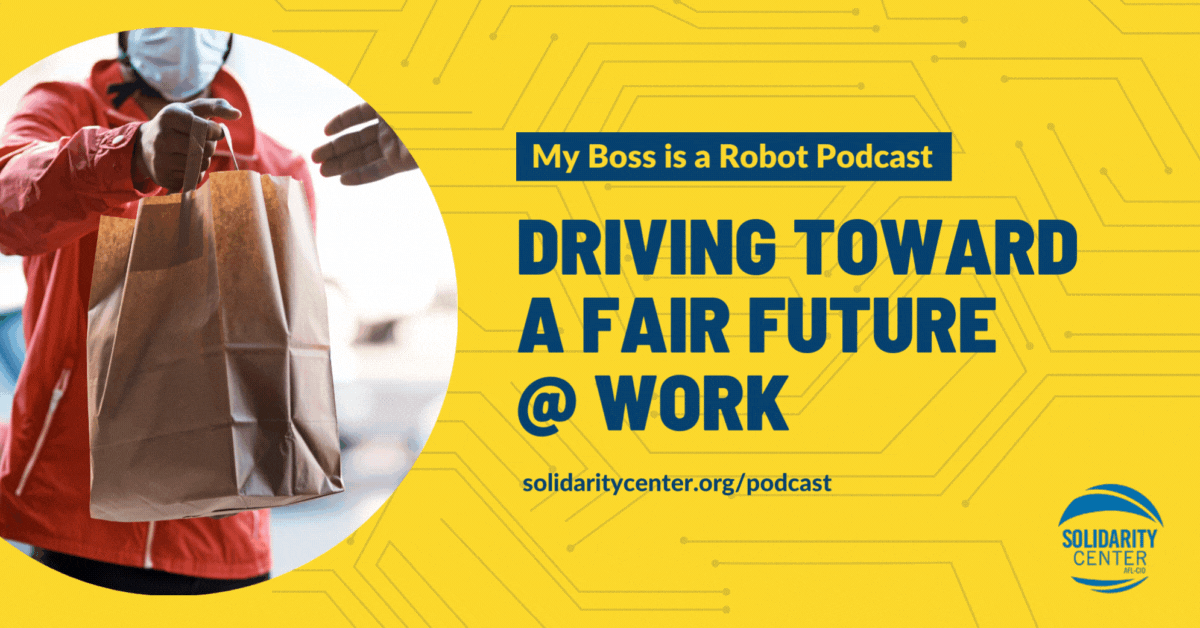A new survey—the first in Ukraine to evaluate domestic workers’ working conditions—found that working without contracts and formal recognition has left most survey respondents victim to low pay, wage theft, confusion about employment status, exclusion from the...

The Solidarity Center assists workers in the informal economy, such as market vendors in Zimbabwe, come together to assert their rights and raise living standards. Credit: ZCIEA
Some 2 billion people work in the informal sector as domestic workers, taxi drivers, and street vendors, many of them women workers. Informal economy work now comprises the majority of jobs in many countries and is increasing worldwide. Although informal economy workers can create up to half of a country’s gross national product, most have no access to health care, sick leave or support when they lose their jobs, and they have little power to advocate for living wages and safe and secure work.
The Solidarity Center is part of a broad-based movement in dozens of countries to help workers in the informal economy come together to assert their rights and raise living standards. For instance, three affiliates of the Central Organization of Trade Unions-Kenya (COTU-K), a Solidarity Center partner, signed agreements with informal worker associations to unionize the workers, enabling them to access to the country’s legal protections for formal-sector employees.
Find out more about informal workers gaining power by joining together in unions and worker associations in this Solidarity Center-supported publication, Informal Workers and Collective Action: A Global Perspective.
Driving Toward a Fair Future @ Work
While the rapid increase in app-based jobs around the world offers millions of workers additional avenues to ear money, it also creates new opportunities for employer exploitation through low wages, lack of health care and an absence of job safety–and that means...
Grab Riders in Metro Manila Strike Against Unjust Fare Decrease
In the Philippines, 200 Grab Food Delivery Riders, through the National Union of Food Delivery Riders (RIDERS-SENTRO), waged a one-day strike October 25 to protest a fare decrease scheduled to start that day. Grab’s new rate will reduce the base fare from 45 pesos to...
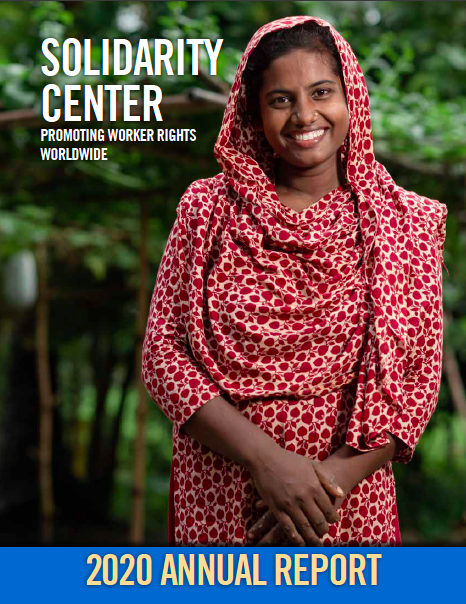
2020 Annual Report
Download here.
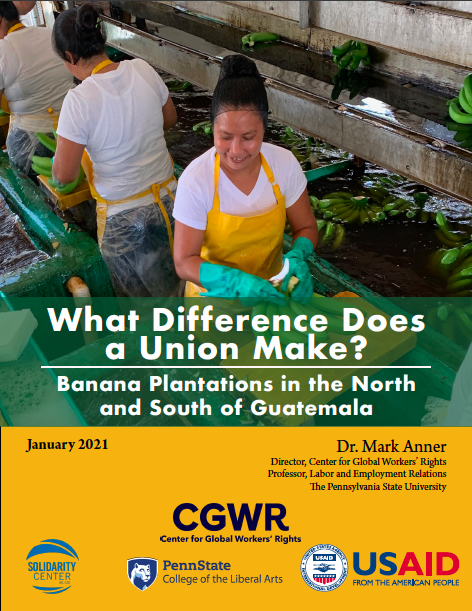
What Difference Does a Union Make? Banana Plantations in the North and South of Guatemala
Guatemalan banana workers without a union work longer hours and earn less than half than of those who are unionized, and report more cases of verbal and physical abuse. Download in English. Download in Spanish.
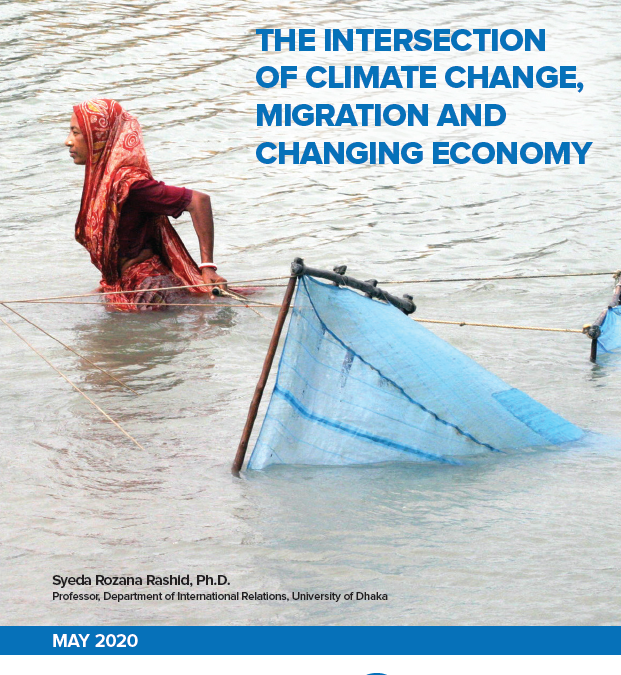
REPORT: CLIMATE CHANGE IN BANGLADESH DRIVES WORKER VULNERABILITY, POVERTY
This report, The Intersection of Climate Change, Migration and Changing Economy, explores the links among climate change, economic activities and migration in the coastal areas of Khulna and Jashore, Bangladesh, demonstrating its impact on the availability of decent...
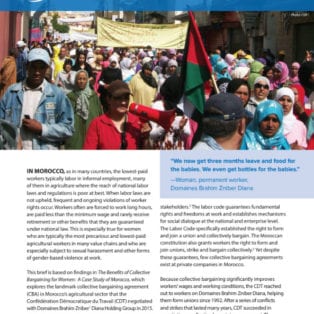
The Benefits of Collective Bargaining for Women Workers in Morocco
Download in English. Download in Arabic. This report was made possible through the generous support of the Ford Foundation.
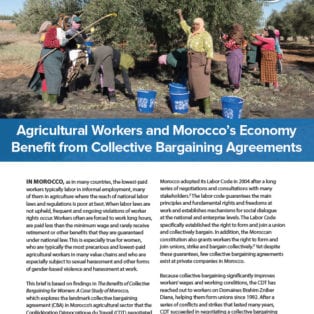
Agricultural Workers and Morocco’s Economy Benefit from Collective Bargaining Agreements
. Download in English Download in Arabic. This report was made possible through the generous support of the Ford Foundation.
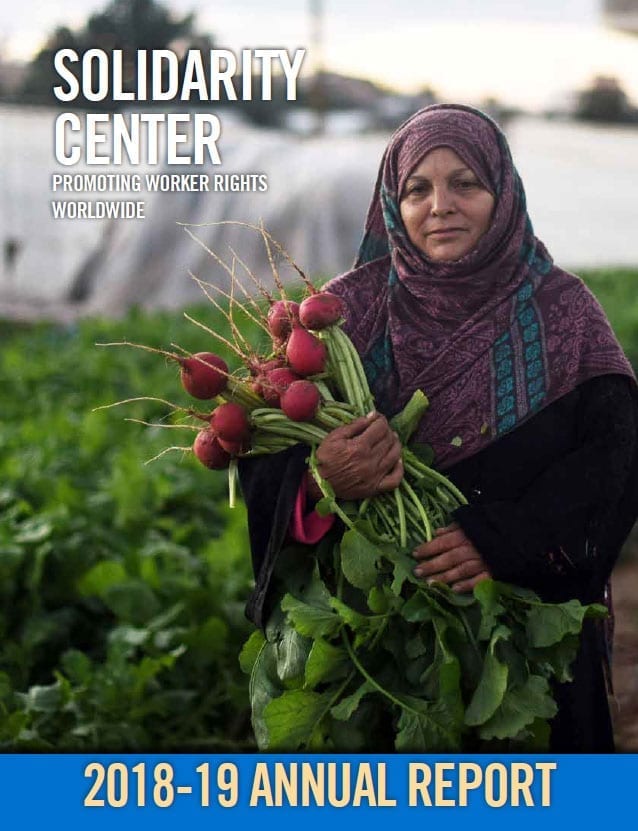
Annual Report, 2018–2019
Download here.


